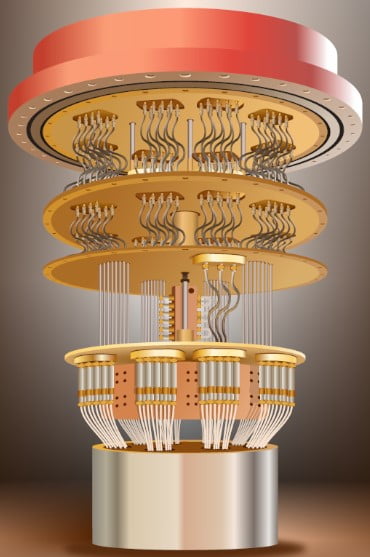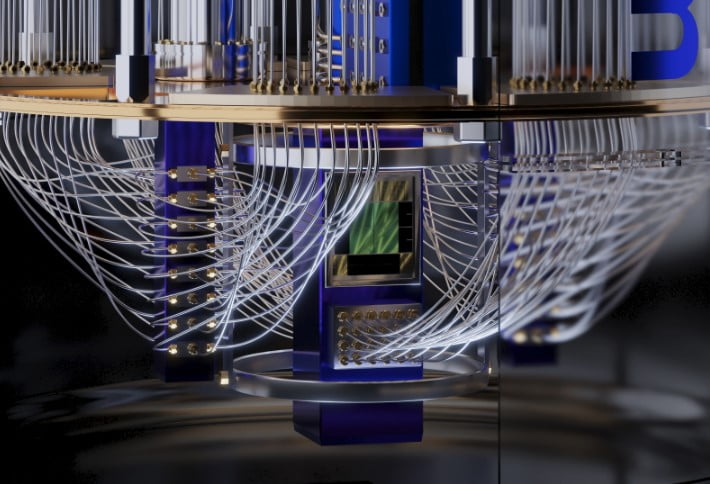Quantum computing promises to solve many of humanity’s complex problems, the use cases range from simulating molecules for drug discovery to optimizing the most efficient delivery routes for your groceries.
However, before these possibilities can become realities, quantum computers must be developed, and there are significant roadblocks yet to be overcome. Some of the challenges include the qubits’ short lifespans, current lack of scalability, inefficient error correction, the demand for highly complex hardware, limited availability of digital infrastructure, inadequate software support, restricted scope for strategic implementation, a shortage of workers skilled in quantum computing, and ineffective security protocols.

Despite these hurdles, numerous companies and countries are actively developing various types of quantum computers. In this list, we exaime what countries have quantum computers and their assocaited Qubit capability and release date. Note we are not covering quantum volume which is also animportant factor when comparing performance between quantum computers.
In this article, we will examine over 40 quantum computers currently in use or in development to give you an overview of the state of progress in this exciting field.
| Company | Qubits | Architecture | Code Name | Country | Release Year |
|---|---|---|---|---|---|
| D-Wave | 5760 | Annealer | D-Wave Advantage | Canada | 2020 |
| D-Wave | 2048 | Annealer | D-Wave 2000Q | Canada | 2017 |
| ATOM Computing | 1225 | Neutral atoms | Not Known | USA | 2023 |
| IBM | 433 | Superconducting | Osprey | USA | 2022 |
| QuEra | 256 | Neutral atoms | Aquila | USA | 2022 |
| Xanadu | 216 | Photonics | Borealis | Canada | 2022 |
| IBM | 133 | Heron | USA | 2023 | |
| IBM | 127 | Superconducting | Eagle | USA | 2021 |
| PASQAL | 100 | Neutral atoms | Gen 1 | France | 2022? |
| ATOM Computing | 100 | Neutral atoms | Phoenix | USA | 2021 |
| Rigetti | 80 | Superconducting | Aspen-9 | USA | 2021 |
| Rigetti | 80 | Superconducting | Aspen-M-1-3 | USA | 2022 |
| USTC | 76 | Photonics | Jiuzhang | China | 2020 |
| 72 | Superconducting | Bristlecone | USA | 2018 | |
| 72 | Superconducting | Bristlecone | USA | 2018 | |
| USTC | 66 | Superconducting | Zuchongzhi 2.1 | China | 2021 |
| IBM | 65 | Superconducting | Hummingbird | USA | 2020 |
| Quantware | 64 | Superconducting | Tenor | Netherlands | 2023 |
| USTC | 62 | Superconducting | Zuchongzhi | China | 2020 |
| 54 | Superconducting | Sycamore | USA | 2019 | |
| RIKEN | 53 | Superconducting | N/A | Japan | 2023 |
| Intel | 49 | Superconducting | Tangle Lake | USA | 2018 |
| Rigetti | 40 | Superconducting | Aspen-11 | USA | 2021 |
| IBM | 33 | Superconducting | Egret | USA | 2022 |
| Rigetti | 32 | Superconducting | Aspen-10 | USA | 2021 |
| Quantinuum | 32 | Trapped ion | H1-2 | UK | 2022 |
| Rigetti | 31 | Superconducting | Aspen-8 | USA | 2020 |
| Rigetti | 28 | Superconducting | Aspen-7 | USA | 2019 |
| IBM | 27 | Superconducting | Falcon | USA | 2020 |
| Quantware | 25 | Superconducting | Contralto | Netherlands | 2022 |
| Xanadu | 24 | Photonics | X24 | Canada | 2020 |
| 22 | Superconducting | Foxtail | USA | 2018 | |
| IBM | 20 | Superconducting | Johannesburg | USA | 2018 |
| Quantinuum | 20 | Trapped ion | H1-1 | UK | 2022 |
| IonQ | 20 | Trapped Ion | Aria | USA | 2022 |
| Rigetti | 19 | Superconducting | Acorn | USA | 2017 |
| Intel | 17 | Superconducting | Flip Chip | USA | 2017 |
| Rigetti | 16 | Superconducting | Aspen-1 | USA | 2018 |
| IBM | 16 | Superconducting | Canary | USA | 2017 |
| Rigetti | 13 | Superconducting | Aspen-4 | USA | 2019 |
| Xanadu | 12 | Photonics | X12 | Canada | 2020 |
| Intel | 12 | Silicon (Dot Gates) | Tunnel Falls | USA | 2023 |
| Baidu | 10 | Superconducting | Qian Shi | China | 2022 |
| Rigetti | 8 | Superconducting | Agave | USA | 2017 |
| Xanadu | 8 | Photonics | X8 | Canada | 2020 |
| IBM | 5 | Superconducting | Canary | USA | 2017 |
| Quantware | 5 | Superconducting | Soprano | Netherlands | 2021 |
| SpinQ | 3 | Nuclear magnetic resonance | Triangulum | China | 2022 |
Types of Quantum Computers

Our list above provides details associated with quantum computers, such as the architecture. To give you some context and help you understand how we organized our list, let’s delve into a quick primer on the types of quantum computers.
There are several main types of quantum computing architectures as shown below:
Universal Quantum Computers
These are akin to the Swiss Army knives of quantum computers, designed to be versatile and capable of running a wide range of programs and solving various problems. Most quantum computers in development, as featured in our list, fall into this category. We explore a few notable types below:
- Superconducting Quantum Computers: These utilize superconducting circuits to create qubits. Companies like Google, IBM, and Rigetti Computing are pioneers in developing quantum computers using this technology.
- Example Systems: Google’s Sycamore, IBM’s Quantum Hummingbird, Falcon, and Eagle processors.
- Trapped Ion Quantum Computers: In these systems, ions (charged atoms) are trapped in magnetic fields and used as qubits. IonQ and Honeywell (now part of Quantinuum) are at the forefront of developing trapped ion quantum computers.
- Photonics Quantum Computers: These systems use particles of light, or photons, as qubits. This modality is known for its potential in creating stable qubits and scalability.
- Example Systems: Xanadu’s Borealis, X8, and X12.
Quantum Annealers
Specialized for optimization problems, quantum annealers are tailored tools designed for specific tasks, similar to using a particular wrench instead of a multi-tool.
- D-Wave Systems is the leading provider of quantum annealers, creating processors that excel in optimization and sampling problems.
- Example System: D-Wave Advantage.
Quantum Simulators
Quantum simulators are predominantly found in research environments, such as universities or national labs. They are typically bespoke, built for specific experiments, and are not as broadly commercially available.
Example System: Commercial systems are often custom-designed for specific scientific tasks and hence may not have widespread commercial names.
- Nuclear Magnetic Resonance (NMR) Quantum Computers: NMR quantum computing uses the nuclear magnetic resonance of molecules to perform quantum calculations, often for research purposes.
- Example System: SpinQ’s Triangulum.
- Neutral Atom Quantum Computers: These use atoms held in place by electromagnetic fields to represent qubits. They are noted for their ability to maintain quantum states for longer periods, which is crucial for quantum computation.
- Example System: QuEra’s Aquila.
Topological Quantum Computers
Still in the experimental and theoretical stage, topological quantum computers promise to use anyons, particles that only exist in two dimensions, to create more stable qubits.
Example System: These systems are not yet commercially available, but Microsoft’s StationQ project is a significant research effort in this area.
Each type of quantum computer has unique advantages and challenges, and the choice of architecture depends on the specific applications and problems to be solved.
About the List
Keeping track of the latest developments in quantum computing can be challenging, but a list of quantum computers can make it easier. By providing a comprehensive overview of the current state of the field, a list of quantum computers can help researchers and investors stay informed and make informed decisions about their work.
While the number of quantum computers is still relatively small, the field is expected to grow rapidly in the coming years, and a list of quantum computers can help keep track of this progress.


